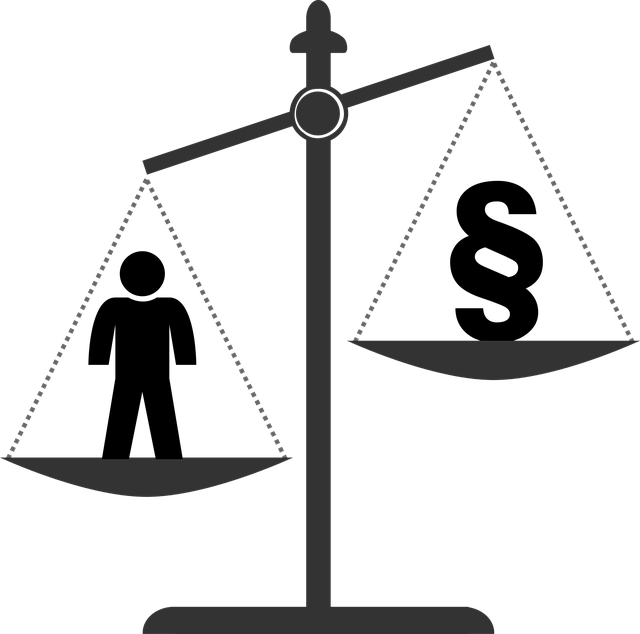In the intricate world of white-collar and financial crime investigations, protecting Defendants Rights in Criminal Cases is paramount for a fair and just process. These meticulous probes uncover sophisticated schemes like fraud, money laundering, and corruption, often involving trusted individuals. Key protections include the right to counsel, presumption of innocence, and protection from self-incrimination. Specialized attorneys navigate complex regulations, laws, and industry intricacies while challenging evidence admissibility and examining witness testimonies. This balanced approach ensures due process, transparency, and accountability, fostering trust in the justice system for all individuals, regardless of status or influence.
“Finance crime probes, a critical aspect of financial regulation, pose unique challenges for both investigators and defendants. This comprehensive overview delves into understanding these investigations, their legal framework, and the delicate balance between administering justice and safeguarding defendants’ rights in criminal cases. From common challenges to strategies for fair treatment, this article explores essential considerations for all involved, emphasizing the importance of due process within financial crime proceedings.”
- Understanding Finance Crime Probes: A Comprehensive Overview
- The Legal Framework: Protecting Defendants' Rights
- Balancing Justice and Due Process for Accused Individuals
- Common Challenges Faced by Defendants in Financial Crimes Cases
- Strategies for Ensuring Fair Treatment During Criminal Proceedings
Understanding Finance Crime Probes: A Comprehensive Overview

Finance crime probes, also known as white-collar crime investigations, are intricate processes designed to uncover and prosecute illegal activities committed for financial gain. These cases involve sophisticated schemes, such as fraud, money laundering, and corruption, often carried out by individuals and organizations in positions of trust. Understanding finance crime probes is crucial for both law enforcement agencies and defendants facing criminal charges.
The process encompasses all stages of the investigative and enforcement process, from initial suspicion to trial. Defendants’ rights in criminal cases are a vital consideration throughout these stages. A general criminal defense strategy may involve challenging the admissibility of evidence, questioning witness testimonies, and leveraging legal loopholes to ensure a fair trial. In complex financial crimes, white-collar defense attorneys play a critical role in navigating the nuances of regulations, laws, and industry practices, aiming to protect their clients’ interests while upholding the integrity of the financial system.
The Legal Framework: Protecting Defendants' Rights

In criminal cases, the legal framework is designed to protect defendants’ rights while ensuring a fair and just process. This includes guarantees against self-incrimination, the right to counsel, and due process throughout all stages of the investigative and enforcement process. Defendants have the legal standing to challenge evidence, question witnesses, and present their own defense, crucial elements in avoiding indictment. These rights are not only essential for ensuring a fair trial but also serve to maintain public trust in the justice system.
Moreover, the protection of defendants’ rights extends beyond the courtroom, influencing how law enforcement agencies operate and interact with individuals under investigation. This balance is vital to prevent abuses of power and safeguard the reputation of both philanthropic and political communities from unfounded accusations. By upholding these legal principles, the justice system fosters a culture of transparency and accountability, ensuring that everyone, regardless of status or influence, receives equal treatment under the law.
Balancing Justice and Due Process for Accused Individuals

Ensuring justice while upholding due process is a delicate balance, particularly in finance-related crime probes. When investigating white-collar and economic crimes, it’s crucial to respect the rights of defendants in criminal cases. This includes the right to counsel, the presumption of innocence, and protection from self-incrimination—essential safeguards for all individuals, regardless of their background or the nature of the alleged offense.
For his clients facing corporate or individual charges, the process can be labyrinthine, but it’s vital that both legal teams and investigators maintain a keen awareness of these rights. Proper procedures not only ensure fairness but also strengthen the integrity of the justice system, fostering confidence among those involved in complex financial transactions.
Common Challenges Faced by Defendants in Financial Crimes Cases

Defendants in financial crime cases often face a myriad of challenges. One of the primary issues is the complexity of financial transactions, which can make it difficult to trace and prove illicit activities. This complexity requires defendants to navigate intricate legal jargon and understand complex investigative techniques used by prosecutors, who may have an unprecedented track record in similar cases across the country. The sheer volume of documentation and data involved can be overwhelming, often leading to lengthy delays and increased legal costs.
Additionally, financial crime investigations span all stages of the investigative and enforcement process, from initial suspicion to trial. Defendants must assert their rights throughout this process, ensuring they are treated fairly and in accordance with the law. This includes the right to legal representation, the ability to challenge evidence, and protection against self-incrimination. Balancing these rights while navigating the intricate nature of financial crime cases can be a significant hurdle for those accused.
Strategies for Ensuring Fair Treatment During Criminal Proceedings

Ensuring fair treatment during criminal proceedings is paramount to upholding justice and protecting defendants’ rights in criminal cases. One key strategy is providing adequate legal representation, allowing corporate and individual clients alike to mount robust defenses. This includes access to experienced attorneys who can navigate complex laws and procedures, investigate exculpatory evidence, and advocate on behalf of the defendant. Additionally, transparency and due process are essential; defendants should be fully informed about their rights, charges, and potential consequences, ensuring they understand the legal landscape in which they find themselves.
Another critical aspect is the prevention of bias and discrimination. Efforts must be made to ensure that the criminal justice system treats all defendants equally, regardless of their background or status. This involves rigorous training for law enforcement and judicial personnel to recognize and mitigate unconscious biases that could influence decision-making. Moreover, in high-stakes cases where large sums of money or significant reputational damage are at play, special attention should be paid to avoiding indictment through strategic legal maneuvering while still upholding the integrity of the investigation.
Finance crime probes, while crucial for upholding justice, must also respect the defendants’ rights in criminal cases. Balancing justice with due process is essential to ensure fair treatment during criminal proceedings. By understanding the legal framework and addressing common challenges, we can strengthen the integrity of financial crime investigations and protect the fundamental rights of those accused. This comprehensive overview highlights strategies to achieve a more balanced approach, ensuring that defendants receive a fair trial while holding perpetrators accountable.






